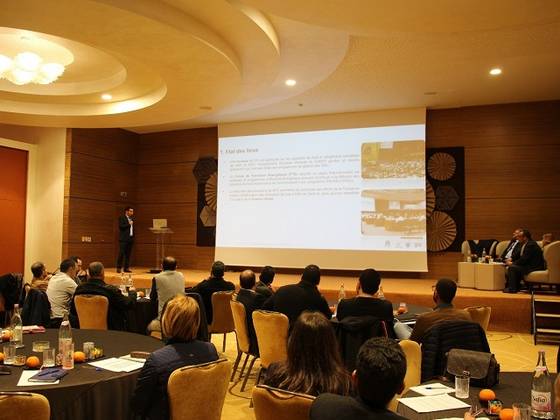On February 20, 2020 the final stakeholder workshop to discuss the implementation of Tunisia’s ozone depleting substances (ODS) Banks roadmap took place in Tunis, Tunisia with more than 50 participants from the private and public sector.
The roadmap is a strategic action plan for ODS bank management and destruction activities. It provides status quo analyses of regulatory, financial, collection, recycling and destruction processes and provides recommendations on long- and short-term actions to be implemented to address ODS Banks. The overreaching goal is to reduce emissions from ODS Banks.
The aim of the stakeholder workshop was to exchange on the content of the roadmap and discuss responsibilities and measures needed to implement it. The workshop started by giving the participants a short introduction to the ODS banks project, the concepts of national roadmaps and Tunisia’s current refrigerant policy. Several discussion rounds on required policy measures related to the financial mechanism and the collection and destruction infrastructure to be implemented followed. During the workshop, announcements were made indicating Tunisia's imminent adherence to the Kigali Amendment and the inclusion of Tunisia's HFC reduction commitments in its updated NDC.
The stakeholder workshop was organized by the Proklima ODS Banks project along with the partners National Agency for Environmental Protection (ANPE), National Agency for Waste Management (ANGed) and National Agency for Energy Conservation (ANME).


